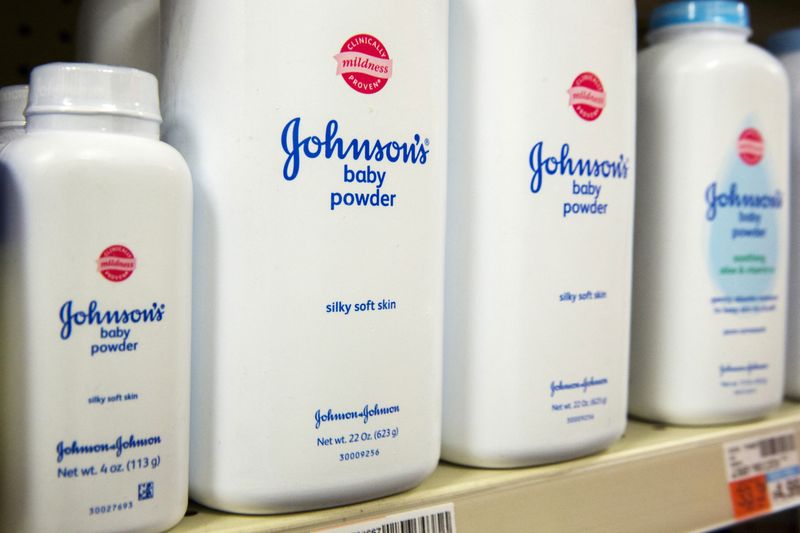By Brendan Pierson
(Reuters) -Johnson & Johnson on Wednesday faced the first trial in almost two years over claims that asbestos in its baby powder and other talc products causes cancer, as it seeks to settle thousands of similar cases in bankruptcy court.
Emory Hernandez, 24, says he developed mesothelioma, a deadly cancer, in the tissue around his heart as a result of exposure to J&J (NYSE:JNJ)'s talc products beginning when he was a baby. The company has denied that its talc contains asbestos, which is linked to mesothelioma, or causes cancer.
Joseph Satterley, a lawyer for Hernandez, urged jurors in Alameda County, California court to reject the company's defenses and hold it responsible for his client's illness.
"I can assure you the evidence will be very strong," Satterley said. "Mesothelioma is a signature disease of asbestos."
Allison Brown, a lawyer for J&J, said in her opening statement that the company went to great lengths to ensure that there were no contaminants in its talc. She said that Hernandez's form of mesothelioma was very rare, and more likely related to a family history of heart disease and cancer.
"We have never wavered in our belief that talc is safe and does not cause cancer," she said.
J&J subsidiary LTL Management in April filed for bankruptcy in Trenton, New Jersey proposing to pay $8.9 billion to settle more than 38,000 lawsuits, and prevent new cases from coming forward in the future. It is the company's second attempt to resolve talc claims in bankruptcy, after a federal appeals court rejected an earlier bid.
Litigation has largely been halted during bankruptcy proceedings, but U.S. Chief Bankruptcy Judge Michael Kaplan, who is overseeing LTL's Chapter 11, allowed Hernandez's trial to go ahead because he is only expected to live a short time.
Even if Hernandez wins, he will not be able to collect on the judgment while the bankruptcy is ongoing.
Still, the outcome of the trial could influence whether other plaintiffs decide to join in the proposed settlement.
Asbestos plaintiffs are seeking to have the latest bankruptcy filing dismissed, and have argued it was brought in bad faith to insulate the company from litigation.

J&J and LTL have argued bankruptcy delivers settlement payouts more fairly, efficiently and equitably than a “lottery” offered by trial courts, where some litigants get large awards and others nothing.
The company said in bankruptcy court filings that the costs of its talc-related verdicts, settlements and legal fees have soared to about $4.5 billion.